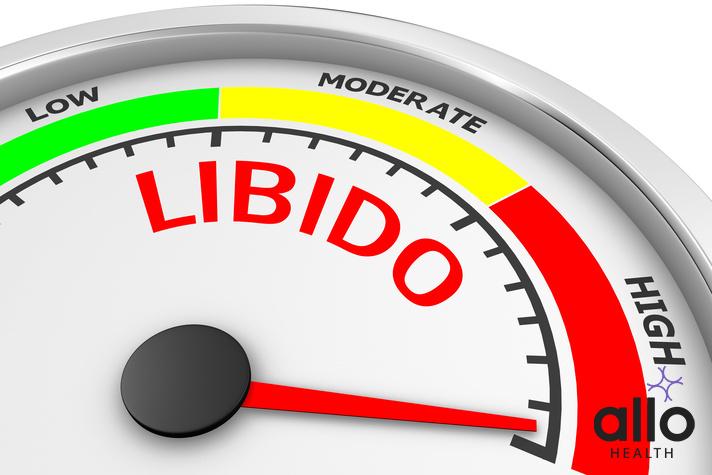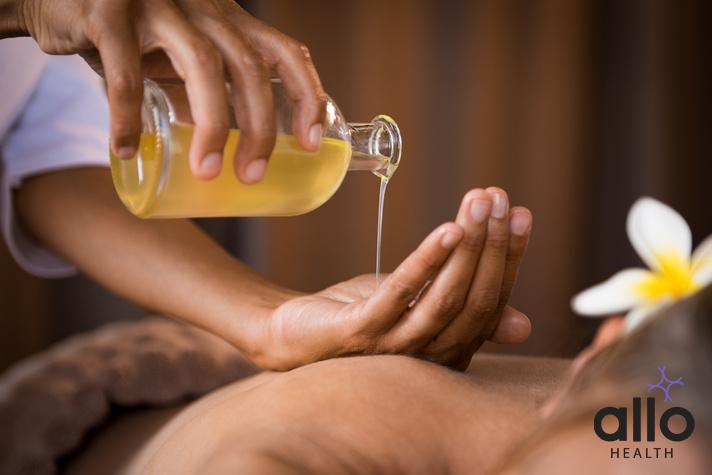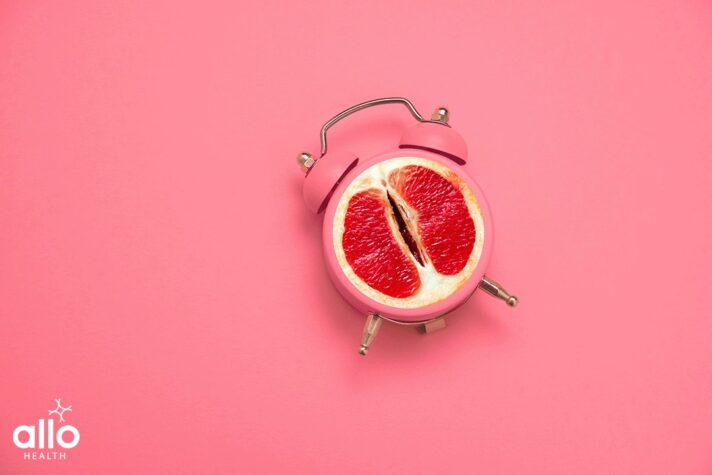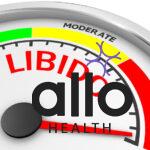Using Ylang Ylang For Low Libido

Allo Health is dedicated to personalized well-being, offering support and trusted information tailored to individual health goals. The platform emphasizes human-generated content, led by a distinguished medical team of experts, including physicians and sexual health specialists. Their commitment to credibility involves rigorous fact-checking, authoritative research, and continuous updates to ensure accurate, up-to-date information. Allo Health's unique approach goes beyond conventional platforms, providing expert-led insights and a continuous commitment to excellence, with user feedback playing a crucial role in shaping the platform's authoritative voice.

Dr. Raj. R holds an undergraduate medical degree from the Philippines, and has a bachelors background in Psychology. His experience working in the field of urology further brought his interest forward in working towards his passion of understanding the science of attraction, intimacy, sex and relationships. A key motto he practices by remains unprejudiced and non-judgemental care.
Why This Was Upated?
Our experts continually monitor the health and wellness space, and we update our articles when new information became available.
Updated on 04 June, 2024
- Article was updated as part of our commitment to diversity, equity, and inclusion.

"The following blog article discusses alternative medicine practices and their potential effects or benefits. However, it is important to note that the information provided is for general educational purposes only and should not be considered as medical advice or a substitute for professional guidance from a qualified healthcare professional. Before considering any alternative medicine practices or treatments, it is recommended to consult with a healthcare professional.
Book consultation
Alternative medicine encompasses a wide range of practices that may not have undergone rigorous scientific evaluation or received widespread acceptance within the medical community. The effectiveness, safety, and appropriateness of alternative medicine practices can vary significantly depending on the individual, their specific medical conditions, and other factors.
It is important to approach alternative medicine practices with caution and skepticism. Some practices may carry potential risks or interact with existing medical treatments. A healthcare professional can provide guidance based on your medical history, evaluate the available evidence, and offer informed advice regarding the potential benefits and risks of alternative medicine practices.
Individuals with specific medical conditions, allergies, or taking medications should exercise particular caution when considering alternative medicine practices. Some practices may have contraindications or adverse effects, and it is essential to discuss these potential concerns with a healthcare professional before pursuing any alternative treatments."
Unlock the secrets to reigniting passion by delving into the therapeutic potential of Ylang Ylang for low libido. This aromatic flower, renowned for its sensual allure, has been cherished for centuries. Discover how its essential oil can enhance intimacy, boost confidence, and address underlying concerns contributing to low libido. From historical uses to practical application, this guide navigates the journey towards a more fulfilling and vibrant intimate life. Explore the natural, holistic approach to reviving desire and fostering a deeper connection with the help of Ylang Ylang.
What is Ylang Ylang and How Does it Work for Low Libido?
- Ylang Ylang Overview:
- A fragrant flower known for its essential oil.
- Originates from the Cananga tree in Southeast Asia.
- Components and Properties:
- Rich in compounds with potential aphrodisiac effects.
- Contains linalool, geranyl acetate, and other aromatic compounds.
- Aromatherapy and Mood Enhancement:
- Potential Libido Benefits:
- Anecdotal evidence suggests Ylang Ylang may boost libido.
- Believed to help balance hormones and improve intimacy.
- Application Methods:
- Dilute and apply topically on pulse points.
- Diffuse the essential oil in the bedroom for a romantic ambiance.
- Caution and Individual Responses:
- Test for allergic reactions before extensive use.
- Individual responses to Ylang Ylang may vary.
- Conclusion:
- While research on Ylang Ylang’s libido-boosting effects is limited, its aromatic properties and traditional uses make it a popular choice for those seeking natural methods to enhance intimacy.
Understanding the Causes and Symptoms of Low Libido
-
Low Libido Causes:
- Hormonal imbalances (e.g., low testosterone)
- Relationship concerns
- Stress and fatigue
- Medications (antidepressants, contraceptives)
- Medical conditions (diabetes, thyroid disorders)
-
Symptoms:
- Decreased interest in sexual activity
- Difficulty becoming aroused
- Lack of sexual fantasies or thoughts
- Relationship strain due to intimacy concerns
-
Psychological Factors:
- Anxiety and depression
- Body image concerns
- Past trauma or abuse
- Low self-esteem
-
Lifestyle Contributors:
- Poor sleep quality
- Sedentary lifestyle
- Substance abuse (alcohol, drugs)
- Nutritional deficiencies
-
Seeking Help:
- Consultation with a healthcare professional
- Therapy (individual or couples)
- Addressing underlying medical concerns
- Lifestyle changes and stress management
Understanding the multifaceted nature of low libido is crucial for effective intervention and improving overall sexual stimulations, sexual experience, and sexual well-being.
The Benefits of Using Ylang-Ylang for Low Libido
- Ylang Ylang is an essential oil known for its aphrodisiac properties
- Enhances mood and reduces stress, contributing to a healthier libido
- Balances hormones, particularly estrogen and testosterone
- Improves blood flow, potentially aiding arousal (sex drive) and sexual experience
- Soothes anxiety and creates a sensual atmosphere when used in aromatherapy
- Anti-inflammatory properties may alleviate physical barriers to libido
- Used in traditional medicine for centuries to enhance romantic experiences (sensual massage oils), because of its unique medicinal properties.
- A natural remedy for low libido without the side effects of pharmaceutical options.
How to Use Ylang Ylang Oil for Optimal Results

- Introduction
- Ylang Ylang oil derived from the Cananga odorata flower.
- Choosing a Quality Oil
- Select a pure, therapeutic-grade Ylang Ylang oil for optimal benefits.
- Aromatherapy
- Diffuse Ylang Ylang oil to promote relaxation and reduce stress.
- Massage and Skincare
- Blend with a carrier oil for a soothing massage or add to a skincare routine for radiant skin.
- Hair Care
- Mix with a carrier oil and apply to hair for added shine and nourishment, dry hair, growth of new and healthy hair follicles, hair loss, and other hair treatments.
- Natural Perfume
- Create a personalized, natural perfume (floral scent) by diluting Ylang Ylang oil with a carrier oil, obtained from a Ylang-Ylang tree.
- Balancing Mood
- Inhale or apply diluted oil to pulse points to enhance mood and alleviate anxiety.
- Improving Sleep
- Diffuse or apply Ylang Ylang oil before bedtime for a calming effect on the nervous system.
- Caution
- Perform a patch test and consult with a healthcare professional, especially for those with sensitive skin or medical conditions.
- Conclusion
- Incorporate Ylang Ylang oil into your routine for a holistic approach to well-being.
Potential Side Effects of Using Ylang-Ylang for Low Libido
- Ylang Ylang, an essential oil, may cause skin irritation if not properly diluted
- Excessive use may lead to headaches or nausea in some individuals
- Individuals with sensitive skin or allergies should perform a patch test before use
- Ylang Ylang can have a sedative effect, causing drowsiness in some users
- Its strong aroma may trigger respiratory concerns for those with asthma or allergies
- Overuse may disrupt hormonal balance, affecting libido adversely
- Pregnant women should avoid Ylang Ylang as it may stimulate uterine contractions
- Consultation with a healthcare professional is advised before using Ylang Ylang for low libido to ensure it’s safe for individual health conditions.
Combining Ylang-Ylang with Other Essential Oils for Enhanced Results
- Synergistic Blends: Combine Ylang Ylang with Lavender for a calming aroma or Peppermint for an invigorating blend.
- Stress Relief: Pair Ylang Ylang with Bergamot and Frankincense to alleviate stress and promote relaxation.
- Romantic Atmosphere: Blend Ylang Ylang, Jasmine, and Rose for a sensual and romantic fragrance.
- Balancing Blend: Mix Ylang Ylang with Geranium and Clary Sage for hormonal balance and emotional well-being.
- Elevate Mood: Combine Ylang Ylang with Citrus oils like Orange or Grapefruit for a mood-boosting effect.
- Skincare: Add Ylang Ylang to carrier oils with Tea Tree and Lavender for a skin-soothing and rejuvenating blend.
- Aphrodisiac Blend: Create a sensual mix by combining Ylang Ylang with Patchouli and Sandalwood.
- DIY Perfume: Experiment with various combinations of Ylang Ylang, Vetiver, and Neroli for a personalized, alluring fragrance.
- Anxiety Relief: Blend Ylang Ylang with Chamomile and Marjoram to ease anxiety and promote a sense of calm.
- Sleep Aid: Mix Ylang Ylang, Cedarwood, and Lavender to create a calming aroma for a restful night’s sleep.
The Science Behind the Relationship Between Ylang-Ylang and Libido

- Ylang Ylang, an aromatic flower, has been linked to enhanced libido and sexual arousal.
- Rich in aphrodisiac properties, it stimulates desire and passion.
- Aromatherapy studies suggest Ylang Ylang can reduce stress and anxiety, promoting a relaxed state conducive to intimacy.
- Ylang Ylang oil may positively influence mood, creating a sensual ambiance.
- This natural remedy has been used for centuries in traditional medicine to improve overall well-being.
- Ylang Ylang’s exotic fragrance is believed to evoke sensuality and heighten romantic experiences.
- While individual responses vary, the potential connection between Ylang Ylang and libido is an intriguing aspect of natural wellness.
Addressing Psychological Factors that Contribute to Low Libido with Ylang Ylang
- Ylang Ylang, an aromatic flower, is explored for addressing low libido influenced by psychological factors.
- Aromatherapy: Ylang Ylang’s scent is believed to alleviate stress, and anxiety, and enhance mood.
- Relaxation: Ylang Ylang may promote a sense of relaxation, reducing mental barriers (affecting mental health) affecting libido.
- Aphrodisiac Properties: Traditionally considered an aphrodisiac, it may heighten sensual experiences.
- Stress Reduction: Ylang Ylang’s calming effects may indirectly alleviate stress-related libido concerns.
- Emotional Connection: The fragrance may foster emotional intimacy, addressing relationship dynamics.
- Sensory Stimulation: Aromatherapy with Ylang Ylang can engage the senses, enhancing overall well-being.
- Personalized Approach: Integrating Ylang Ylang into self-care routines may contribute to a holistic approach to addressing low libido.
- Consultation: Always consult with healthcare professionals for personalized advice on addressing libido concerns.
Tips for Choosing High-Quality Ylang Ylang Oil for Sexual Health Purposes
- Source: Look for ylang-ylang oil from reputable suppliers with a commitment to quality.
- Purity: Opt for 100% pure essential oil without additives or synthetic ingredients.
- Grade: Choose therapeutic-grade ylang-ylang oil for optimal benefits.
- Extraction Method: Steam distillation ensures the preservation of beneficial compounds.
- Color and Consistency: High-quality oil is usually clear with a consistent texture.
- Aroma: Authentic ylang-ylang oil has a sweet, floral scent; avoid oils with off-putting or chemical odors.
- Packaging: Dark glass bottles protect the oil from light, preserving its potency.
- Transparency: Trust brands that provide information on the oil’s origin, extraction, and testing.
- Organic Certification: Select organic ylang-ylang oil to minimize exposure to pesticides.
- Testing: Ensure the oil undergoes third-party testing for purity and potency.
- Storage: Store in a cool, dark place to prevent degradation and maintain efficacy.
- Price: Quality comes at a cost; be wary of significantly cheaper options.
- Consultation: Seek advice from aromatherapy experts or healthcare professionals before use.
Most Asked Questions
-
How does Ylang Ylang enhance libido?
Ylang Ylang's aromatic compounds may stimulate sensual feelings, reduce stress, and promote relaxation, contributing to heightened arousal and improved libido.
-
Is it safe to apply Ylang Ylang oil topically for libido?
Yes, dilute Ylang Ylang oil with a carrier oil and perform a patch test. Use moderation to avoid skin irritation, and consult a healthcare professional if you have concerns.
-
Can Ylang Ylang oil benefit both men and women with low libido?
Yes, Ylang Ylang's properties may positively impact libido for individuals of all genders by addressing stress, promoting emotional balance, and creating a conducive atmosphere.
-
How long does it take for Ylang Ylang to show libido-boosting effects?
Results vary, but many users report immediate effects due to the oil's ability to induce relaxation. Consistent use over time may lead to more sustained benefits.
-
Are there any contraindications or side effects when using Ylang Ylang for libido?
While generally safe, individuals with allergies to Ylang Ylang should avoid it. Pregnant women should consult a healthcare professional before use. Always adhere to recommended dilution ratios to prevent adverse reactions.






































